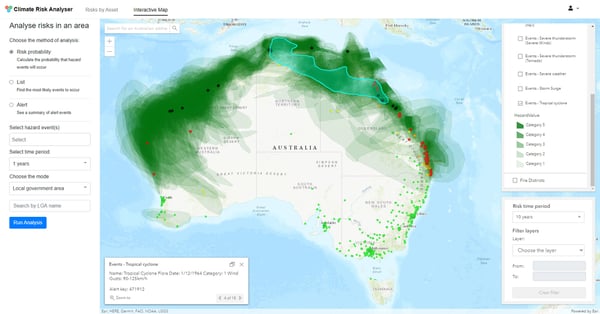As reported on Voxy, New Zealand is the first country in the world to introduce laws mandating banks, insurance, and investment firms to report on the impacts of climate change to their business. To accurately quantify climate risk, firms will need greater consistency, sophistication, and availability of climate risk data.
"Physical risks are more immediately relevant for banks with a high share of products with a long term like mortgages. Transition risks are more important for those with a greater proportion of commercial leans to certain industry sectors... That will place significant data collection and scenario modelling requirements on banks, and indeed the wider financial services sector. There will likely be significant limitations in the data available for reporting and modelling both at the individual firm level, but also sector and national level."
Accenture New Zealand Managing Director Ben Morgan
It's time to accurately quantify climate risk
New Zealand are leading the way when it comes to climate change reporting in business. Australian businesses are currently flying under the radar and are not being held accountable for the lack of significant reporting of climate change risk. The push for more accurate reporting means that organisations will need to look for real-time data rather than synthetic forecasts and analysis to ensure they are providing consistent and relevant information to their stakeholders.
With weather events in Australia becoming more and more extreme, leading organisations will be trying to cover how to mitigate that risk on physical assets and employees.
Why this is important for Australian businesses?
Australian businesses should note these key factors:
- Physical risks within the next few years and up to two decades are more relevant and immediate – something which can be acted upon or mitigated now vs low confident scenarios 30 years down the track
- Data quality: Real data versus synthetic means analytical outcomes have high confidence, are actionable, accountable and defensible.
EWN Climate Risk Disclosure Services
Australia's climate and the associated risk is changing for businesses. EWN's climate risk support platform, Climatics, provides a way for businesses to:
- identify potential hazards,
- quantify the future risk and
- compare to what that risk was in the past.
Analysis is available on a wide variety of hazards and severities ensuring your climate risk disclosure report covers all aspects of your physical risk.

You can read the full article here.